six photographers revisit the intimate spaces of their homes and the soft sights and sounds they witnessed from their windows, to capture the mundaneness of life lived during the lockdown

Holding on to disparate moments

ADVERTISEMENT
By Nitesh Mohanty
Home is where Nitesh Mohanty has lived many different lives. Love, happiness, companionship, grief and death, came and went, sometimes overstaying their presence, and on other occasions, leaving very quickly. It's this transience that Mohanty has made peace with.
Before he moved to Ahmedabad from Mumbai to chair the Crafting Creative Communication programme at MICA, he was caregiver to his late wife, Diya, who was diagnosed with astrocytoma in 2007. She passed away in 2018. For a significant part of the 10 years when his wife was battling cancer, Mohanty had been by her bedside. "So, the idea of home was never too distant or alien. I am most comfortable at home, because I would hardly step out, to make images. I thought that what the home offers is vivid enough for me to question the little details, that I could notice through my lens," he says.
When the pandemic happened, it didn't feel out of the ordinary. "I had already done a bit of social distancing, while I was a caregiver and didn't have a social life."
Just that, now he had moved cities. And the house he was occupying, was a new one. "The idea seamlessly extended itself from a chapter that I was part of, to a new
chapter that I was living, through a different framework."
If there was something that he was trying to make sense of, it was the difference between living in a house and a home. "…if Mumbai was a home, and if this is just a house that I am trying to inhabit? Or, am I trying to create a little room for affinity to these bare walls and space I am occupying with a friend and partner?"
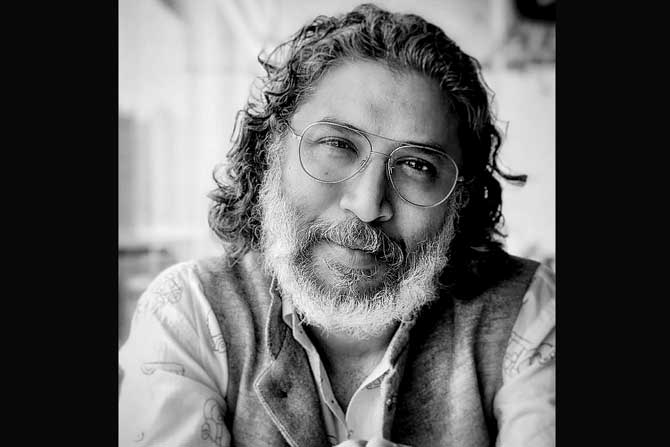
Nitesh Mohanty
This new conversation and curiosity with the idea called home, and what it means to him now—after having lived a life where you have lost someone dearest to you—gave birth to a lockdown-themed series of images that Mohanty has aptly titled, This Too Shall Pass. It is part of Guldasta, an online project that showcases personal voices and narratives in the form of words, images, videos and zines.
"We don't have a choice, but to accept this. And the fact that it's transitory, gives us more hope."
A black and white photograph of a pair of hands raised against a white wall, is juxtaposed with a bird in flight, as seen from the balcony of an apartment. Another picture has a woman in the buff chuckling in the bedroom, paired with a picture of a sliver of sunlight on the wall of an unlit room. "As someone who is trying to understand the medium of photography, I have mostly been holding singular moments and that has been my preoccupation, largely. This time around, when I was putting the [lockdown] story together, I was conscious about what happens when two disparate images start speaking to each other. It can either initiate a sense of irony, or harmony or just a juxtaposition. Because, in life everything is juxtaposed. You might want to hold on to a thing or idea in singularity, but it's always aligned with something else, and while in the absence of something else, it can have a linear reading, the moment you offer a juxtaposed thought next to it, it initiates an interesting conversation," says Mohanty, adding, "All these moments were shot individually without a conscious idea of pairing them later on. So, while the picture of hands being raised has nothing magical about it, the moment you pair it with a bird, it talks about the human yearning to be set free."
Follow https://www.instagram.com/nimo_obscura/
Making memories with acha
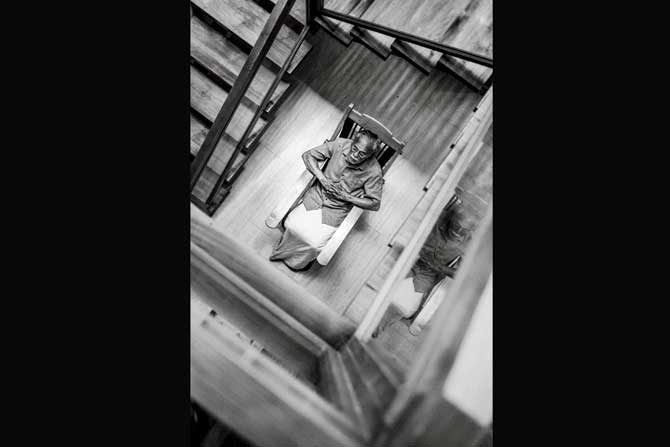
By Athul Prasad
Achan. Acha. Dad. The words mean the same, but conjure many ideas for travel photographer Athul Prasad. Unlike his mother, who he describes as his friend, his acha is the person he looks up to. The deference and generational gap have always made it difficult for Prasad to hold a conversation with him. Acha is also home. For someone who has lived a fairly austere life, Prasad says his 68-year-old father's only extravagance has been the dream home he built for his family in his hometown Trivandrum, right across their ancestral property.
In the second week of March, just before the lockdown, Mumbai-based Prasad, who has lived a fairly peripatetic life, between states, countries and hotels, found himself with everything that came to represent his acha. His mum was visiting her elder son in Australia. This meant that Prasad, who had gone to be with his dad, would now be cooped up with him.
The result is a series of contemplative photographs, which Prasad says, enabled him to see his father in a different light. "I have been away from home for nearly seven years, and each time I came back, it was just for a few days. This has been the longest, I have been in the house my father built seven years ago. And, it was surreal, because, dad and I hadn't lived in such close proximity," shares Prasad.
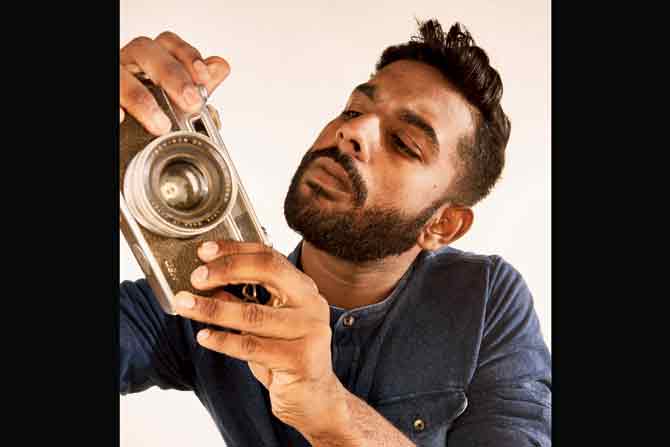
Athul Prasad
It was when he stumbled upon a heap of family photo albums, with many pictures taken by his father that he realised how little he had documented his own family, especially him. "I have always avoided taking family photographs, because I don't want my professional life to seep into my personal space. Yet, I knew that this moment with my father was not going to come back. I wanted to preserve this memory."
To re-imagine what it might have been to take pictures on film like his father had done when Prasad was a child, he taped the digital screen of his DSLR, and started shooting his dad, as he went about the mundane, routine activities of sleeping, checking his phone, or just lounging in his chair. He would go back to the pictures only later, so that he couldn't tamper with the image as he clicked them, and that except for the camera, nothing came in between him and the subject. "At some point, dad also began to feel excited about it, and it became a bonding exercise for us. I started this project in April. In May, when he grew a beard, it was he, who asked me to take a picture of him. Thanks to these photographs, it helped me crossover barriers with acha. Our relationship has become breezy, to the say the least," he says. "Most importantly, I wanted to do this for myself, so that I could savour this time, when I go back to it in the future."
Follow https://www.instagram.com/athulprasad/
Mumbai on a lunar chart

By Hashim Badani
The telescope, otherwise a tool used to see faraway and inaccessible objects, became a bridge that helped Mumbai photographer Hashim Badani crossover, and see his ageing parents.
A few days before the lockdown, Badani and his wife had visited their in-laws in Mahalaxmi. "Then the lockdown happened, and because it is a gated building, and movement had been restricted, we decided to stay there for a while," says the Bandra resident. As the days rolled into weeks, Badani became increasingly nostalgic about home and his parents, who live a few kilometres away, in the neighbouring Byculla. "I couldn't go and see them, because they are old, and it wasn't a risk worth taking," he remembers. That the lockdown coincided with the holy month of Ramzan, which Badani says was "very relevant" to his family, made him yearn for home, more than ever. What was reassuring was that he could see his parents' home, from the refuge area of the Mahalaxmi building. "The lockdown had skewed all sense of direction and distance. I was living close enough to my parents to spot the speck that is their home, but farther than I've ever been in every other way. To not be by their side, when they needed me most, added to my guilt and frustration." His lockdown photo-series, which he later shared on Instagram, was a response to this.
Badani borrowed a telescope from a friend, and set it up on the terrace, and tried to spot his Byculla home. "Even though home was really far, I could see it. So, I called my mum and asked her to come to the balcony. I was able to spot her, though she was just a white speck. And this became a routine through the month of Ramzan—a strange mode of communication. She'd come out every evening, and I'd make photos of her through the telescope. It felt like some physical validation to be able to see my parents in real-time."
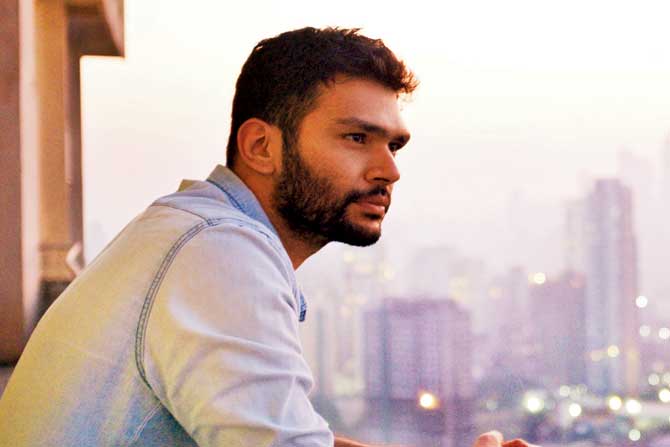
Hashim Badani
In between, he found himself collecting reminders about the city that surrounded him. "The fact that we are a port, and that the sea is never far, where my father went to work [Sewri], and some of the places I grew up in. The more pictures I made, the more I felt the need to fit everything into something bigger. Maybe it's the moon this May. Maybe it's the strange solace we seek from traditions when times are tough," Badani later shared on Instagram. He then placed these images on a lunar chart. "It was representative of different things. It was taken during the month of Ramzan, and ended on Eid, after the sighting of the moon."
The grid of the telescope images, he says, is a map of many things, but most of all it's a way home. "As a documentary photographer, I have always interacted with urban spaces. But, because of the circumstances, I had suddenly been alienated from it. This was a good way to feed into those memories.
It's me looking outward, from within the house."
Follow https://www.instagram.com/hashimbadani/
Dreaming and longing of home
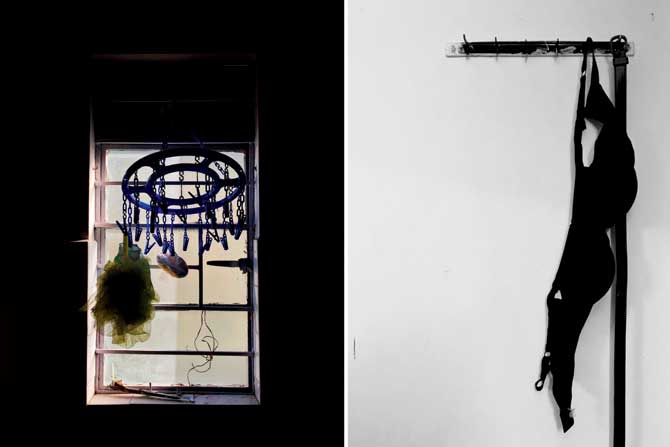
By Menty Jamir
I DON'T know when I will go home." It's a question that has plagued Delhi-based Menty Jamir for the last four months, and inadvertently crept into her photography. An image of her staring into a fogged bathroom after a shower, the shadow of her hands dancing against wet tiles, scattered strands of hair flying like the unruly branches of a tree, and a brassiere hanging by a hook. These are pictures of longing and regret, says Jamir, who originally hails from Nagaland.
When the lockdown was announced, Jamir's worried mother had asked her to return home, so that she could be with the family. "I have been away from home since I was 15, and couldn't imagine myself being stuck with my parents, for such a long time. I was worried that we would argue constantly and that would put a strain on our relationship," she says. That decision, however, soon left her remorseful. "The one thing that I loved doing was stepping out for a walk or run to the neighbourhood park. Sometimes, I'd lie down on the grass, and simply stare into the sky and watch the birds fly." Those small luxuries had been snatched away.
Cooped up at home, chasing her own shadows, she found herself thinking of home, very often. "I even began dreaming of it—spending time with parents, siblings and friends. In my hometown, there are no cases [of COVID-19] yet, and people were going about their life normally. I regretted not leaving, when I could have or should have," says Jamir. Her story too, has found room in the lockdown-themed series by Guldasta.
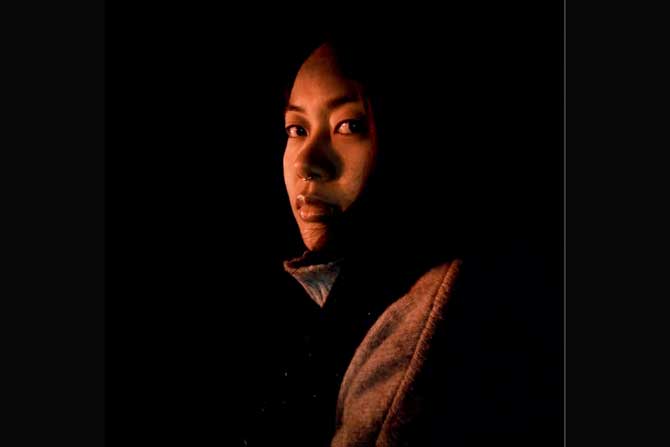
Here, Jamir shared photographs she had clicked over the last one year, contrasting and sometimes, juxtaposing it with life indoors, to highlight the paradox of being trapped. "I switch on and off, on and off. I sing, I swim, I sink. I reach for the light that is not far, only to be met by me fears. The silence in-between time, the sighs of unidentified emotion… I reflect, I reminisce, I remain," she writes.
Working on this project, articulating her thoughts and giving shape to the loneliness she was experiencing, has helped her cope, she says. "Right now, it's just me speaking to my plants, day in and day out. Yet, I know, I am also making something meaningful and beautiful alongside." It's a story, she says, that's worth preserving, and one that she will remember, once she finds her way back home.
Follow https://www.instagram.com/menty___jamir/
Finding beauty in monotony
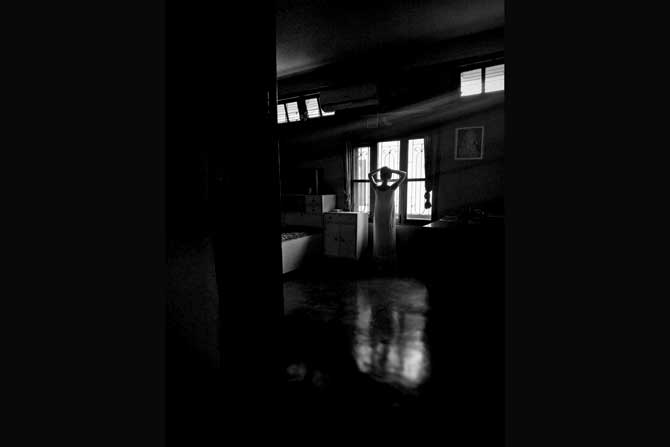
By Rishita Sharma
It was on photographer Mayank Austen Soofi's Instagram timeline @thedelhiwalla that 20-year-old Assam-based engineering student Rishita Sharma, found her tiny moment of fame. A portrait of a friend who was visiting her at home, and whom she had clicked, while she was gazing outside the window and tying her hair in a loose bun, was shared by Soofi on his page. Sharma, who is a self-taught photographer and pursues it as a hobby, has spent the last few weeks indoors, making sense of what it is to be at home. Her friend, who lives in the same colony and visits her often, is a recurring subject, and so is her mother, while she is preparing pickle on the terrace, or lying down on the floor, or cooking in the kitchen. "I really love shooting outdoors, but with the lockdown, I suddenly found myself at home, but that also helped me look for a new way to express myself," shares Sharma. "My pictures are more about capturing the monotony of my daily life, and the people who are part of it. To me, they are ordinary, but I think it's this ordinariness that I find most beautiful." The photographs that she has shared on her Instagram handle, are a mix of shots taken on her DSLR, Redmi note 6 and iPhone. "But I think it's most convenient to take pictures on the phone, because I don't like my subjects to know that they are being clicked. It takes away from the realness of the image," she adds. The lockdown, she says, if anything has made her more observant about the little things that she had taken for granted—like the hidden corners in her house that look different at different times of the day. "And because, I live in Assam, which is always so beautiful, it lends itself effortlessly to my camera."
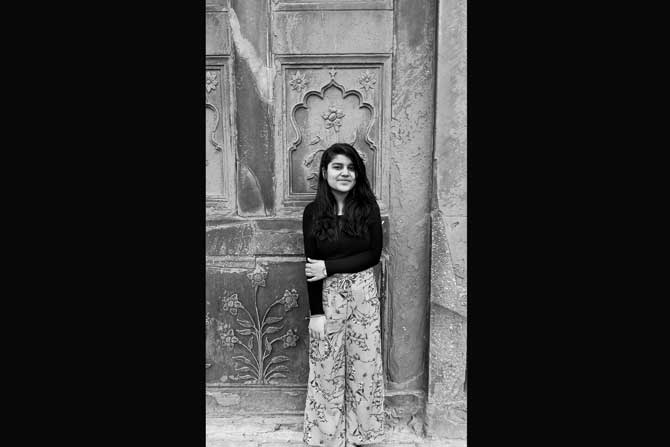
Rishita Sharma
Follow https://www.instagram.com/rishitaa_18/
Observing the inanimate
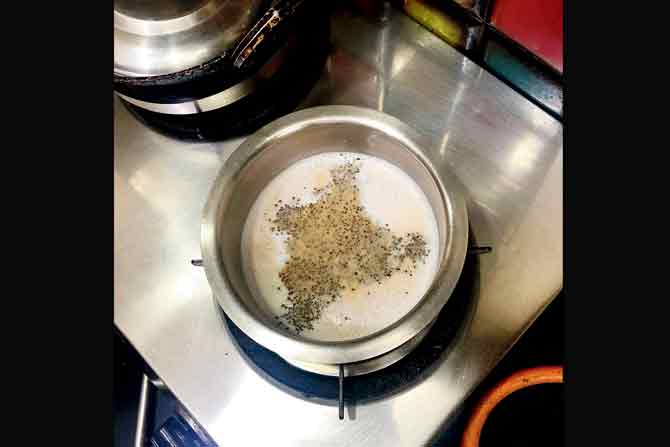
By Ritesh Uttamchandani
The anxiety that comes with isolation, is no stranger to Ritesh Uttamchandani. An independent photographer, Mumbai-based Uttamchandani has spent crucial—if not significant—time within the four walls of his house, not once, but thrice, in the last decade. The first one was long-drawn. An accident, followed by a surgery, had left him home-bound for 10 months. The second instance was in 2018, when he was in the midst of publishing his debut photobook, The Red Cat and Other Stories, which required investment of both emotional labour and a lot of man-hours. "I am used to observing the intimate spaces of my home," he shares. And yet, the lockdown, didn't quite fit into his isolation narrative, mostly because it was imposed on him. Uttamchandani who has been living with his sisters, for the last four months, says the experience was disorienting, at least in the beginning.
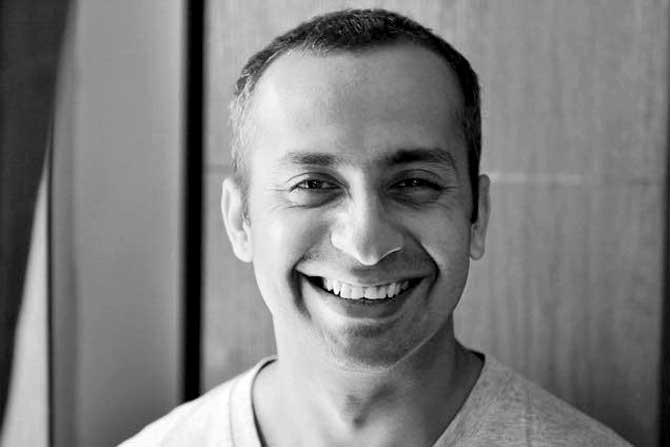
Ritesh Uttamchandani. Pic courtesy/Vipurva Parikh
"Just before the lockdown, I had started work on my second photobook, and I was hoping it would keep me busy for the next few months. And then suddenly, all my plans had come to naught," he shares. While his contemporaries saw the lockdown as an opportunity to busy themselves with their cameras, Uttamchandani, who is also a photojournalist, for once "didn't feel the need to overstretch myself". He avoided taking pictures with his phone or DSLR for a while, and if and when he did, the shots seemed "mopey," like his state of mind. "But photographers are instinctive by nature. I was not deliberately building a visual narrative, but because I was mindful about everything around me, I couldn't stop myself either." The patterns of his sister's hair fallen over the dust in the house while sweeping the floor, the bareness of his gated colony, and his neighbour who'd religiously step out in a PPE kit every evening, so that his dog could take an evening walk, were observations that made their way into his photographs. But, the one that stayed with him, was while making himself tea one morning. "I had left the tea to boil, and then rushed mid-way to do another errand in the house. When I returned to pour myself tea, the chai patti [tea powder] in the handi, had oddly come together in the shape of the map of India. It was so strange that I had to take a picture of it," says Uttamchandani. "To me, it also reflected the situation we as a nation are in. With every state following its own rules to arrest the spread of the virus, one gets a sense of the balkanization of this country. India is boiling, even if slowly."
Follow https://www.instagram.com/riteshuttamchandani/
Catch up on all the latest Mumbai news, crime news, current affairs, and a complete guide from food to things to do and events across Mumbai. Also download the new mid-day Android and iOS apps to get latest updates.
Mid-Day is now on Telegram. Click here to join our channel (@middayinfomedialtd) and stay updated with the latest news
 Subscribe today by clicking the link and stay updated with the latest news!" Click here!
Subscribe today by clicking the link and stay updated with the latest news!" Click here!







